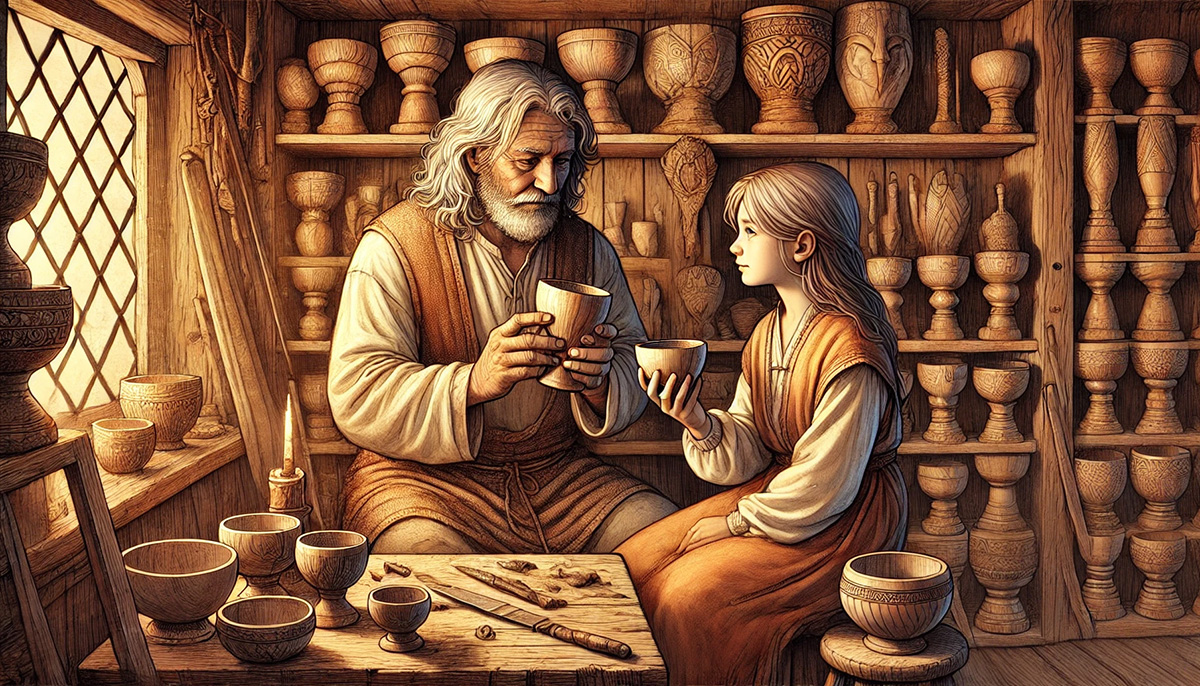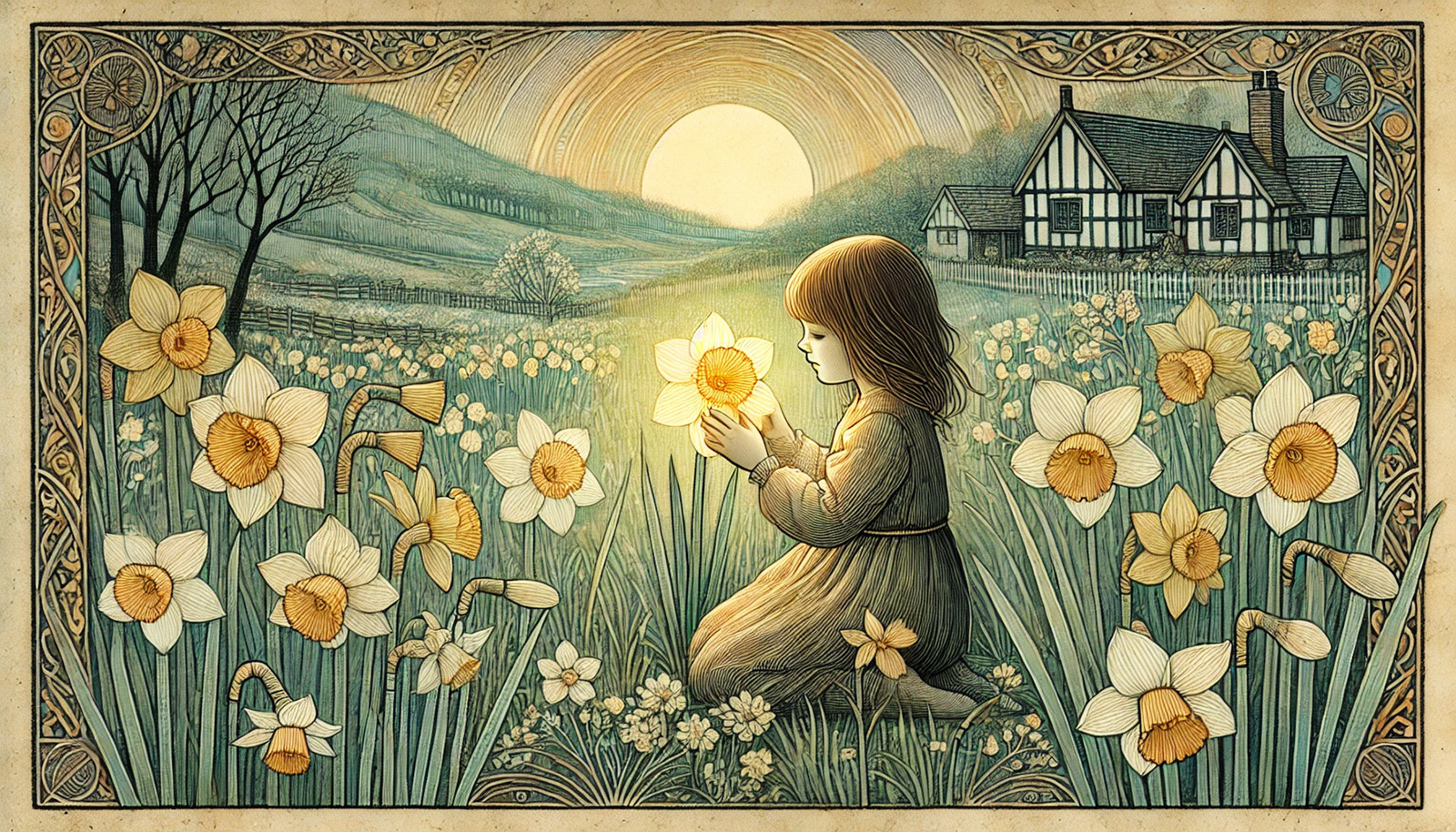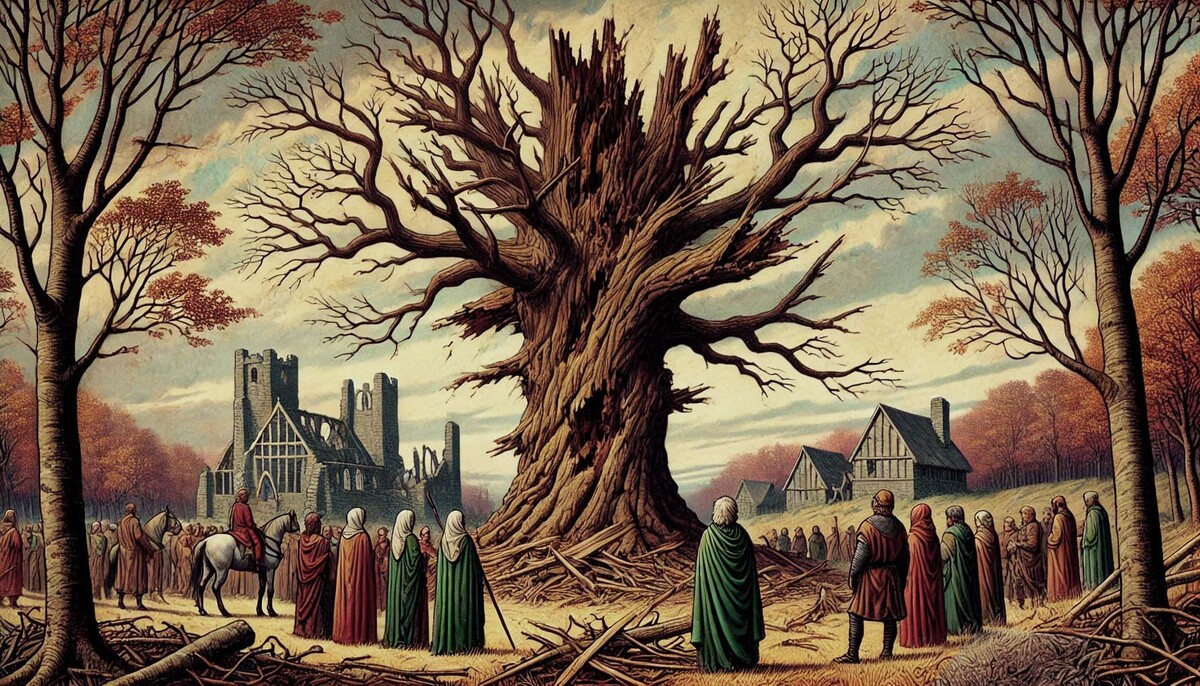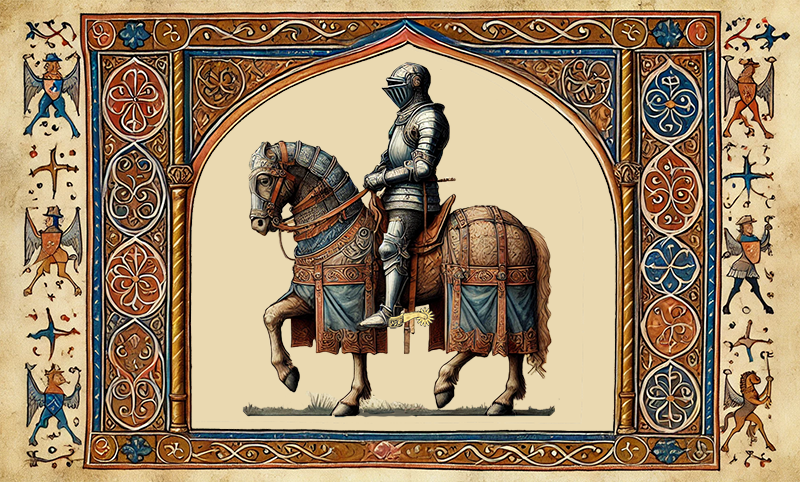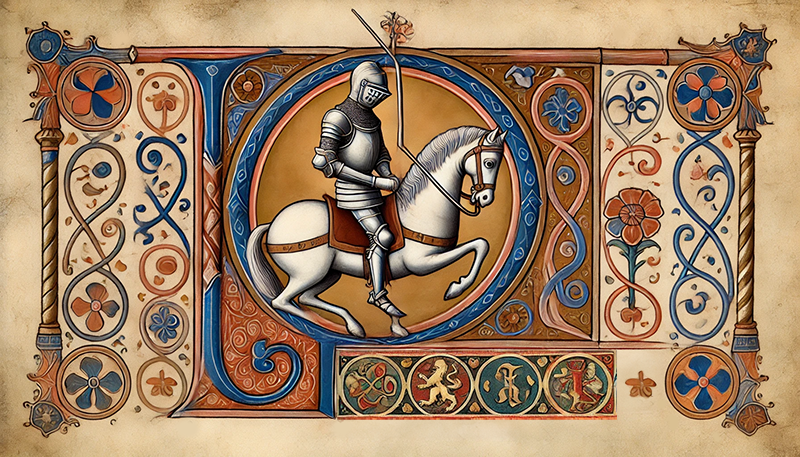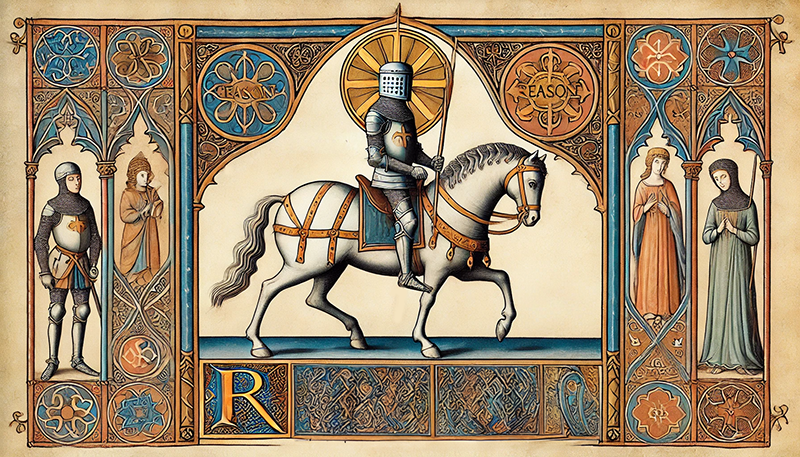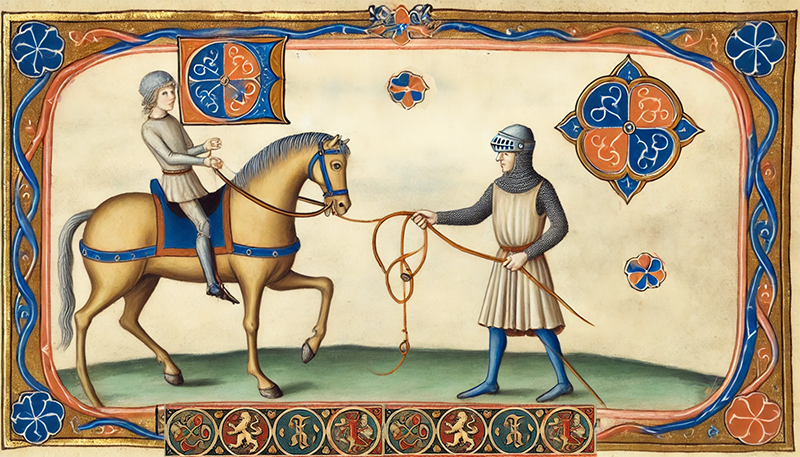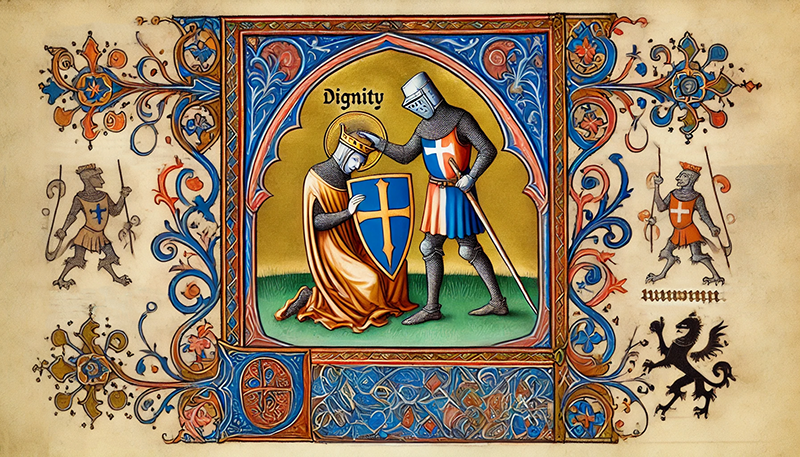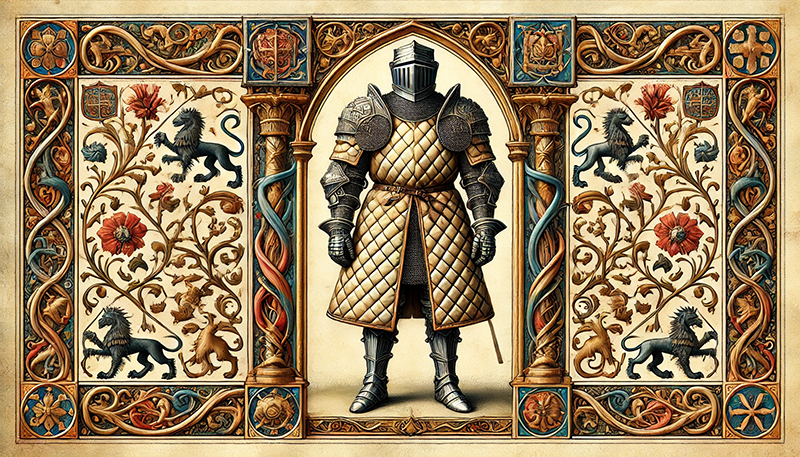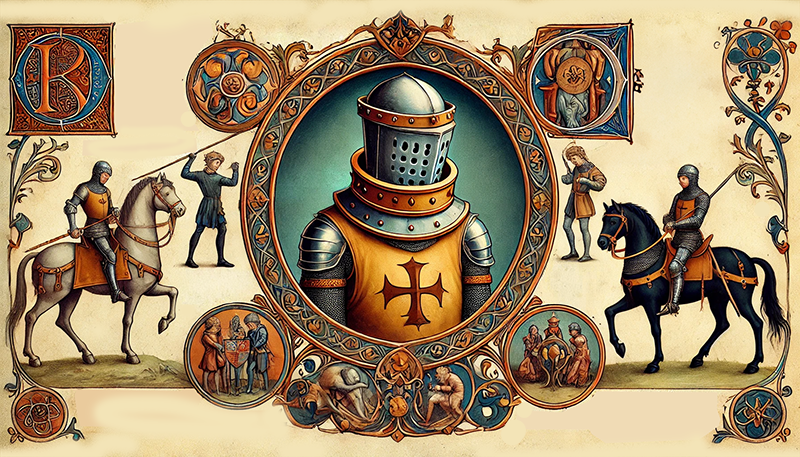The Book of the Order of Chivalry (c. 1275), was written by Ramon Llull (1232–1315), a polymath and Christian mystic from Majorca. Llull thought that knights should be chosen, trained, and ordained like priests. Llull’s book became a handbook of chivalry throughout much of Europe. Being a Christian mystic, of course he writes about Chivalry using Christian vocabulary. But I think his ideas transcend any particular Spiritual Tradition.
Llull wrote over 250 books on a wide range of subjects, including theology, philosophy, logic, science, and even poetry. (And one on Chivalry!) He is best known for his book Ars Magna — a groundbreaking philosophical and logical system that aimed to uncover universal truths using mathematics — now considered the invention of Mathematical Combinatorics. He was also known for his interest in memory and logical systems more generally: his method of linking virtues to physical objects is an example of the ancient memory technique known as the Memory Palace.
An overview of the Order of Chivalry, and a linked table of contents to all my blogs (with music) on various chapters of Llull’s book can be found HERE.

Here Llull equates the knight’s collar (an armored collar worn around his neck) with ‘obedience’: (more…)


